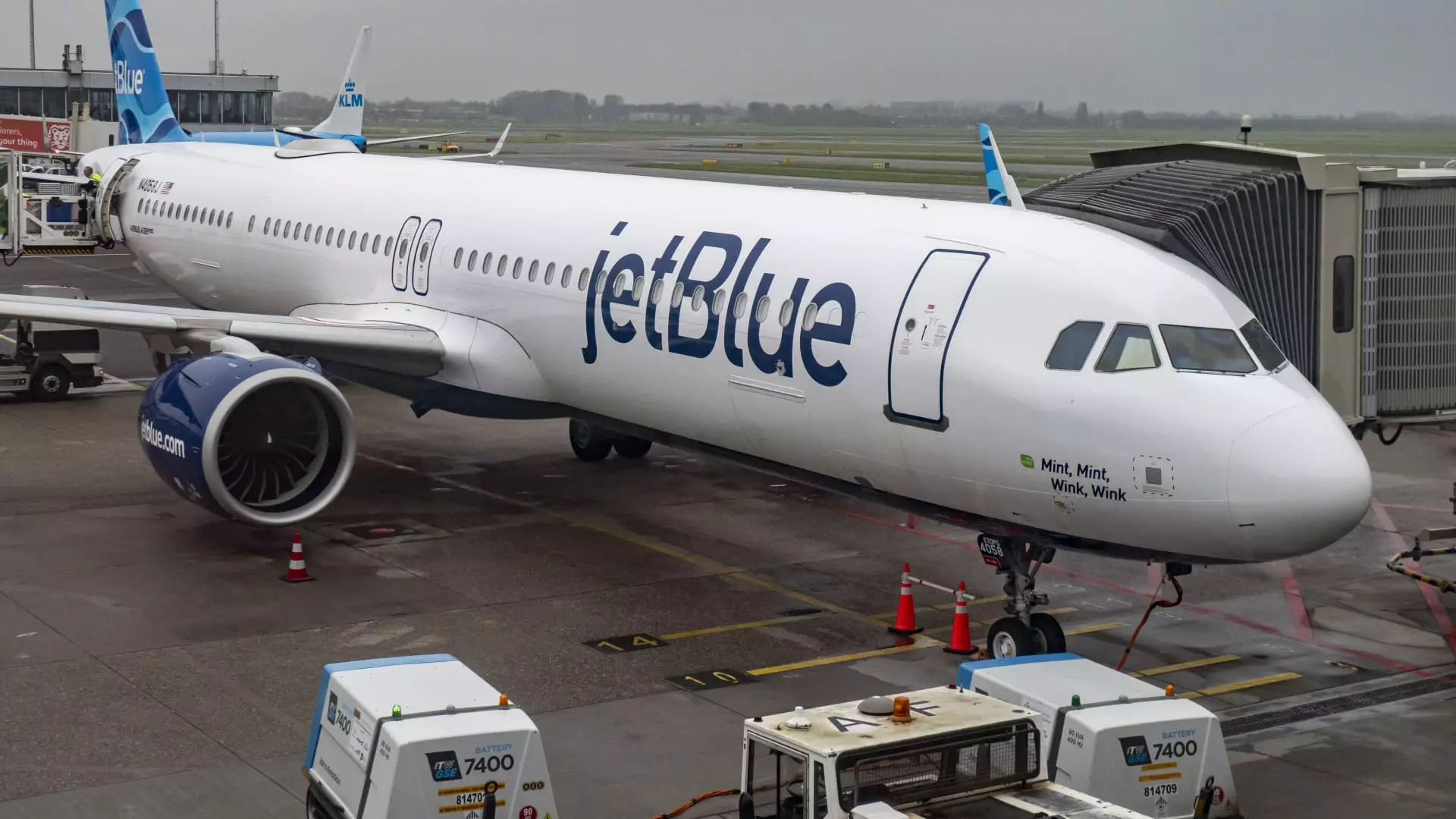JetBlue Airways experienced a significant decline in its share price, plummeting over 10% in premarket trading following the adjustment of its 2024 revenue forecast. This unfortunate development comes at a crucial time for the airline as it strives to achieve profitability amidst challenging market conditions.
The airline announced that second-quarter revenue is projected to decrease by as much as 10.5% year-over-year, a figure that surpassed the expectations of analysts surveyed by LSEG. Additionally, JetBlue forecasted a drop in full-year sales in the low single digits, falling short of Wall Street estimates. This revision is particularly disappointing considering the initial projection of flat sales for the year outlined in the January report.
In an effort to streamline operations and enhance financial performance, JetBlue has embarked on a cost-cutting initiative that involved discontinuing unprofitable routes while focusing on routes with consistent demand and robust sales for premium seats. Despite these strategic efforts, the airline’s financial outlook remains challenging, reflecting the turbulent nature of the aviation industry.
JetBlue’s decision to terminate its merger agreement with Spirit Airlines due to antitrust concerns further underscores the complexities of navigating the competitive landscape. The airline’s competitors, such as Delta and United, have managed to maintain profitability and strong revenue forecasts, benefiting from their extensive international networks. As JetBlue grapples with heightened capacity in its Latin America region and ongoing operational issues like the Pratt & Whitney engine recall, the road to recovery appears fraught with obstacles.
In response to the revenue setback, Joanna Geraghty, JetBlue’s CEO, expressed confidence in the company’s strategic direction and reiterated the commitment to returning to profitability. Emphasizing the importance of executing the refocused standalone strategy, JetBlue remains steadfast in its pursuit of sustainable growth and financial stability. The airline continues to explore additional cost-cutting measures to bolster its financial resilience and weather the uncertainties of the market.
JetBlue’s financial performance in the first quarter of the year reflected the challenges facing the aviation industry, with a loss of $716 million or $2.11 per share. While this represents a wider loss compared to the same period in 2023, the adjusted loss of $145 million or 43 cents per share showed some improvement. Despite revenue declining by 5.1% to $2.21 billion, JetBlue’s efforts to mitigate losses and enhance efficiency are evident in the narrower adjusted loss relative to analyst expectations.
JetBlue Airways’ revised revenue forecast underscores the turbulent nature of the aviation industry and the challenges facing the airline as it pursues profitability. By prioritizing cost-cutting measures, strategic initiatives, and operational efficiency, JetBlue aims to overcome current setbacks and position itself for long-term success in a competitive market environment.

